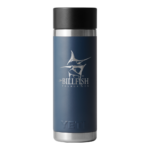NMFS Scoping New Strategies to Allow Commercial Vessels Inside Closed Zones to Research
NEEDS ALL ANGLERS ATTENTION – The National Marine Fisheries Service (NMFS) launched a new and very comprehensive process for evaluating the success or inefficiencies of current Pelagic Longline Closed Zones and Gear
Restricted Areas to achieve full swordfish quota utilization and reduction of seafood trade imbalance. The text makes clear billfish are not priorities for NMFS, rather pelagic longline fishing for tuna and swordfish are priorities with sea turtles, marine mammals, and sharks. TBF will be issuing a CALL TO ACTION soon. Details provided below:
To evaluate success or inefficiencies of current Pelagic Longline Closed Zones and Gear Restricted Areas achieving full swordfish quota utilization and reduction of seafood trade imbalance, the NMFS proposes a range of research and data collection options that focus on:
- negative impacts to U.S. commercial fleets’ ability to harvest swordfish while not offering conservation benefits for other species making the closure considered inefficient;
- seafood trade imbalance due to inefficient closed areas;
- original closure goal to reduce fishing pressure on overfished species no longer needed following stock recovery; and
- original management goals met through more current measures.
It is very obvious the agency has not one mention of recognition of concerns for full utilization of the sportfishing industry or conservation of overfished Atlantic billfish stocks or other species, including sea turtles, mammals and sharks. The emphasis is solely on benefiting the commercial pelagic longline fishery. Again, the purpose of considering research strategies in protected waters is to evaluate the effectiveness of the zones and areas to achieve for the commercial pelagic longline fishery. If judged ineffective, the zone or areas could be modified or removed.
Issuing Exempted Fishing Permits (EFP) remains the current method to receive government authorization for research activities inside a restricted area. This was the method used by commercial pelagic longline vessel owners in 2017 and 2018 to fish inside Florida’s east coast closed zone, which had been in place for 16 years. The commercial fishing “research” did not take place. During the government’s review process of the research application, a great deal of controversy arose by those, TBF lead the opposition in the sportfishing industry, who wanted to and remain committed to retaining the long-established conservation zone off Florida’s east coast with the realized and potential benefits accruing to many species, other than swordfish.
These waters have been extremely productive for the recreational fishing community since the closure, so the possible allowance of commercial fishing in this area is of great concern to us – and should be for all those that fish in the area. Be sure to stay up to date on this issue by subscribing to our newsletter and joining or renewing your membership. We will provide more details and how to provide comments soon.






